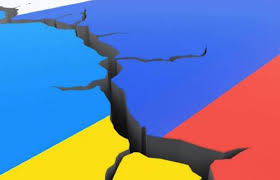Witkoff’s back-channel push on Ukraine alarms allies
A 28-point-plan, drafted with Russian input, is the White House’s latest push to end the fighting between Russia and Ukraine.
American allies and Ukrainian officials were scrambling on Wednesday to understand the terms of a Trump administration peace proposal for Ukraine, with many worrying it meant the U.S. could cave to Russian demands in a rush to end the fighting.
As European and U.S. officials alike sought clarity, they said many aspects of the plan remained in flux, including the role of NATO and any Ukrainian territorial concessions to Russia.
The effort by Trump administration’s peace envoy Steve Witkoff — who has been serving as an interlocutor with Moscow — began late last month when he met with Russian special envoy Kirill Dmitriev in Miami, according to one person familiar with the matter, just as President Donald Trump’s hopes for a meeting with Russian President Vladimir Putin fell apart.
Ukrainian and European officials felt blindsided as the existence of Witkoff’s plan became public, a pain particularly sharp because they felt Trump had finally begun to realize Putin’s insincerity in reaching a settlement, said the person and another familiar with the matter.
The people, like others in this story, were granted anonymity to discuss sensitive diplomacy.
The 28-point plan — the existence of which was first reported by Axios — would in its current form require significant concessions from Ukraine, including restraints on its military and giving up major territorial tracts, according to a third person familiar with the effort. But the person stressed that the provisions of the plan remained negotiable.
One aspect U.S. officials are still pondering is whether and how to mention NATO, the person said. The discussion of NATO has not been previously reported.
Ukraine has sought NATO membership as a security guarantee against a future Russian invasion. While some European countries support that, the U.S. has rejected it and Moscow has long demanded Kyiv not join the defensive alliance, viewing that as a threat. The European allies also worry about granting Russia territorial concessions, which they see as rewarding Moscow’s aggression and setting a concerning precedent.
The White House declined to comment on the specifics of the plan or how it came about.
In European capitals, officials were trying to make sense of a plan with few details to go on.
“We have not been briefed on this,” German Foreign Minister Johann Wadephul told reporters Wednesday. “There are ongoing efforts by all international partners to finally get President Putin to the negotiating table.”
He added: “We naturally support everything that leads in this direction. We are focusing on supporting Ukraine and thus making it very clear to Putin that there is no alternative to a negotiation process.”
©POLITICO


Коментар